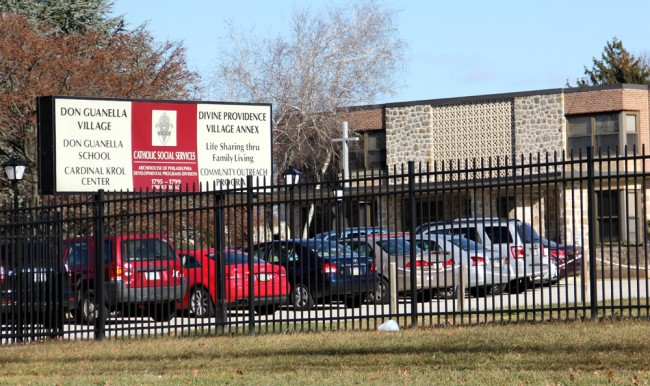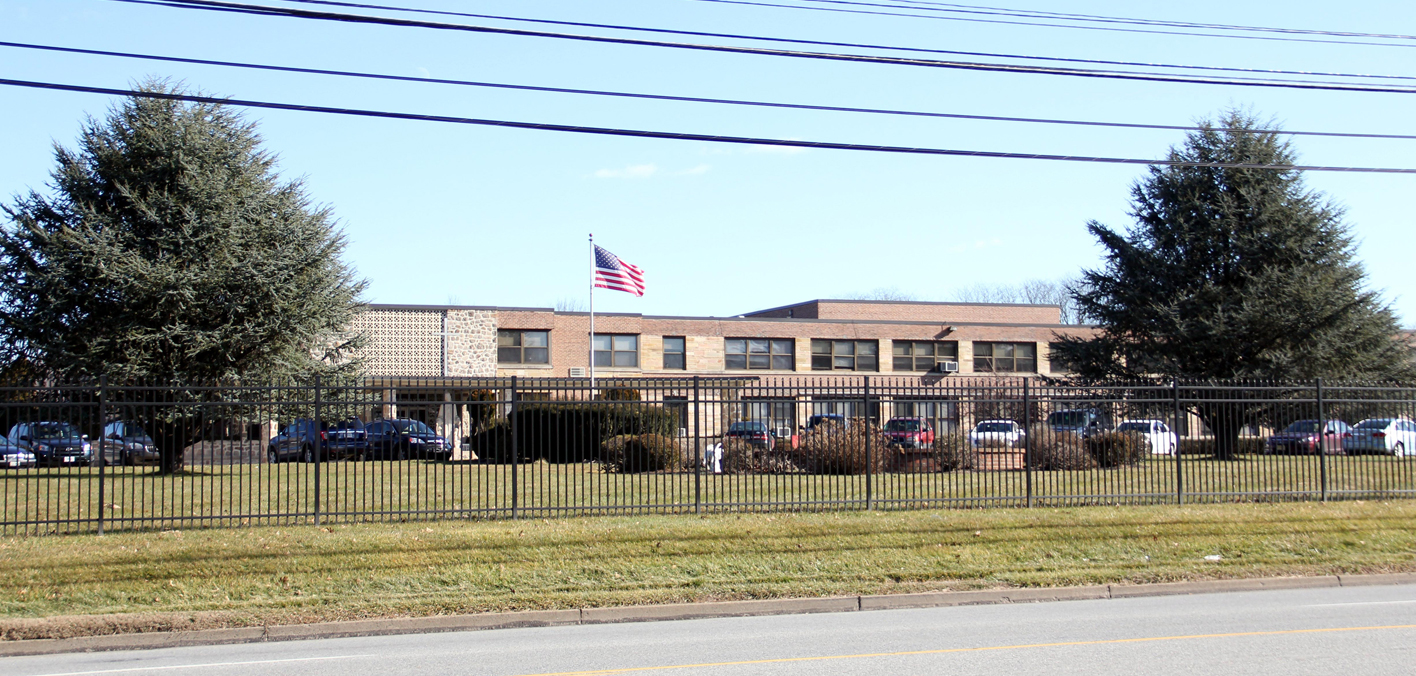An era will end when, as announced recently, Don Guanella Village begins to move from a full campus-based program to smaller, community-based group homes.
The facility for intellectually disabled men in Springfield, Delaware County has been run by archdiocesan Catholic Social Services for almost half a century.
No firm date for the closure has been set, but it is expected to be finalized with some men relocated in smaller group homes by the end of 2015 at the latest, according to James Amato, deputy secretary CSS.
[hotblock]
The need for a campus-based program for the older, frailer men remains strong and a plan will be developed for it within the next several months.
The two factors driving the closure are finances and changes in societal views as to the best practices for residential care of persons with disabilities.
Although Don Guanella receives major funding from the Commonwealth of Pennsylvania, the projected operating deficit for fiscal year 2013 is $1.6 million, caused in part by the removal for mainstreaming purposes of the Delaware County Intermediate Unit from Don Guanella School.
Also, although there is encouragement but no mandate from the state, best practices favor movement of residents into smaller facilities that promote greater mainstreaming into the local community.
At this point younger residents formerly housed at the Don Guanella School, those under 18, have already been relocated to Duffy Hall in the Holmesburg section of Philadelphia, which is part of the St. Francis-St. Joseph Homes for Children system.
Pending the state budget passing, it is expected that four community group homes housing eight men each (32 total) will be developed from fall 2013 through spring 2014.
Other than the fact they will have more contact with the surrounding community, the men will have greater privacy in that they will be either one or two to a room instead of four to a room in the current main building, which has been a source of concern.
The preference is to work with Delaware County parishes that have available land and are willing to welcome a group home on their property.
Keeping the group homes in Delaware County is preferred because a number of men participate in day programs and sheltered employment in that area.
Each resident will be accommodated according to his respective needs, functioning and medical condition. Don Guanella staff is meeting regularly with an ad hoc group of parents to review alternate residential settings that ensure continuity and quality services to all 128 men at Don Guanella.
Day student members will be offered the opportunity to continue their participation at an off-campus location, preferably in now-vacant parish schools in Delaware County.
Since it will not be practical to keep the administrative and program staff on the 200-acre property, they too will be relocated to a central Delaware County site and the property ultimately marketed for sale.
How soon all of this can be accomplished will depend on the necessary state funding to see it to completion.
Some of the men living at Don Guanella Village have been there for decades, and relocation may be a challenge.
As to feedback from families, “at first there was tremendous concern,” Amato said. “Many would like to see it continue as it was. They are beginning to recognize the fact that we have to adapt our model for the mission to remain hale in the 21st century.”
Sharon Bulgarelli has two siblings in long-term residential care in archdiocesan facilities for persons with intellectual disabilities. Her sister, Elaine Parker, 43, lives in Divine Providence Village, and her brother, James, 41, lives at the CK Center, and they have done so for most of their lives.
The difference is Elaine already lives in a cottage setting, while James lives in the large building but will now be relocated to a smaller cottage.
Both are older and they do need the smaller setting, she believes, but she would not want them in a totally community-based facility.
“They need to be among their friends, and I would not want to see them outside of the Catholic community,” she said. “Wherever they are, it has to be a professional setting and up to code. My mom and dad chose this for them because it was Catholic. To be put into the community in general is not to their best interest. The bottom line is we live in our world and they live in theirs.
“The smaller cottage where James is going looks fabulous, and in the smaller setting there will be more individual attention.”
All of this takes money but, she said, “The funding has been cut, they need more state funding.”
***
Lou Baldwin is a freelance writer and a member of St. Leo Parish, Philadelphia.
PREVIOUS: Despite evidence, media underplayed March for Life, overplayed gun control rally
NEXT: St. Donato Parish to merge with Our Lady of Lourdes in West Philadelphia




I think a closing like this affects mostly the people involved and those of us not affected by the closure read about it tn a medium such as this or in the newspapers.we are probably affected because we feel for the clients that have to adjust to the change,but not concerned of how and when the powers that be inform us of these decisions. but it is also important that we keep the clients and families in our prayers for the right resolution for each individual affected by the change.
Father Jim,
Your brother and all those that live and teach at Don Guanella as well as their families are in my prayers. I have had the pleasure seeing you introduce your family at mass on many occasions and I know how important family is to you and how you encourage us to see our church as a family.I agree alot of unnessary stress can be avoided when people feel they are being actively heard and their input is valued. I have had the honor of seeing you interact with some men from Woods Services at our parish during and before mass and it is very touching how kind you are when you talk and joke respectfully with them….just like they are part of your family. One specific interaction I remember was a man from Woods services asking you something and then questioning your answer and your heartfelt response was ” I don’t lie” and I inwardly thought “yes Fr. Jim you dont …..he is one of the most honest, frank, geniune priests I know and thank God for that these men are blessed to have him here….”.That interaction and many others have taught me what it truly means to call oneself a Catholic and a Christian….genuine honest concern for another…..
It is sad to see Don Guanella Village in such a state of limbo right now! My brother and the rest of the men who live there really need our support and prayers as they go through this very difficult transition. Please also pray for the staff and the families of these men as well, because their anxieties are at an all time high with their futures being so up in the air. I REALLY wish the Archdiocese would have included the parents and siblings in their decision making process but as usual they blindsided so many of us. Time and time again we see that it is not so much “what” the Archdiocese does that gets so many people upset but it is “how” it does things. Transparency, honesty and sensitivity were three “best practices” that were so blatantly absent from this whole process. I hope going forward the families of these men find a voice, are listened to and respected. We can never forget that these special men and their care takers are at the heart of what it means to respect life; The Don Guanella spirit is at the center of what it means to love the “little ones” among us. If you are pro-life, if you are Christian… I encourage you to pray for and support the men of Don Guanella. They are the living saints among us.